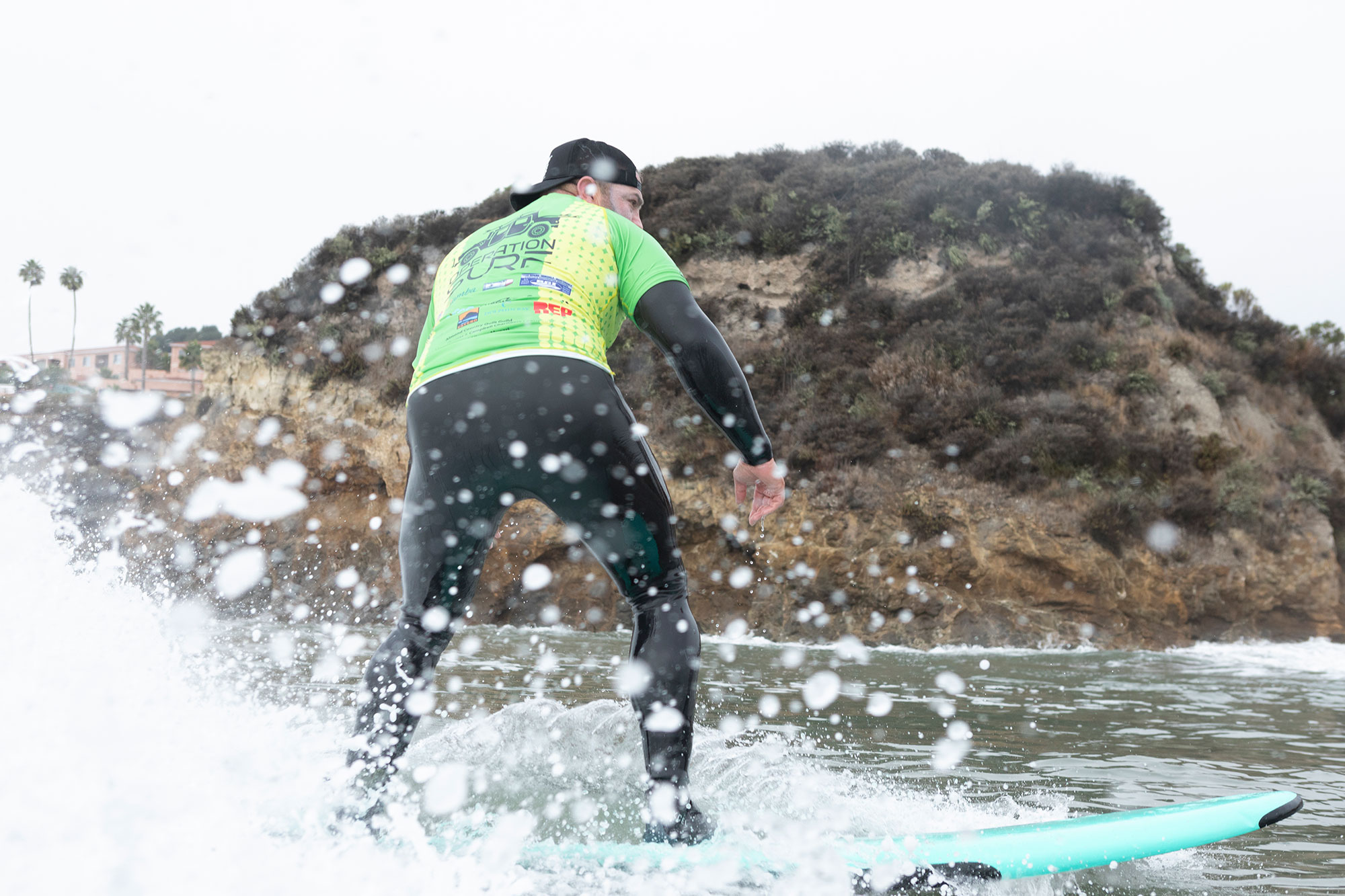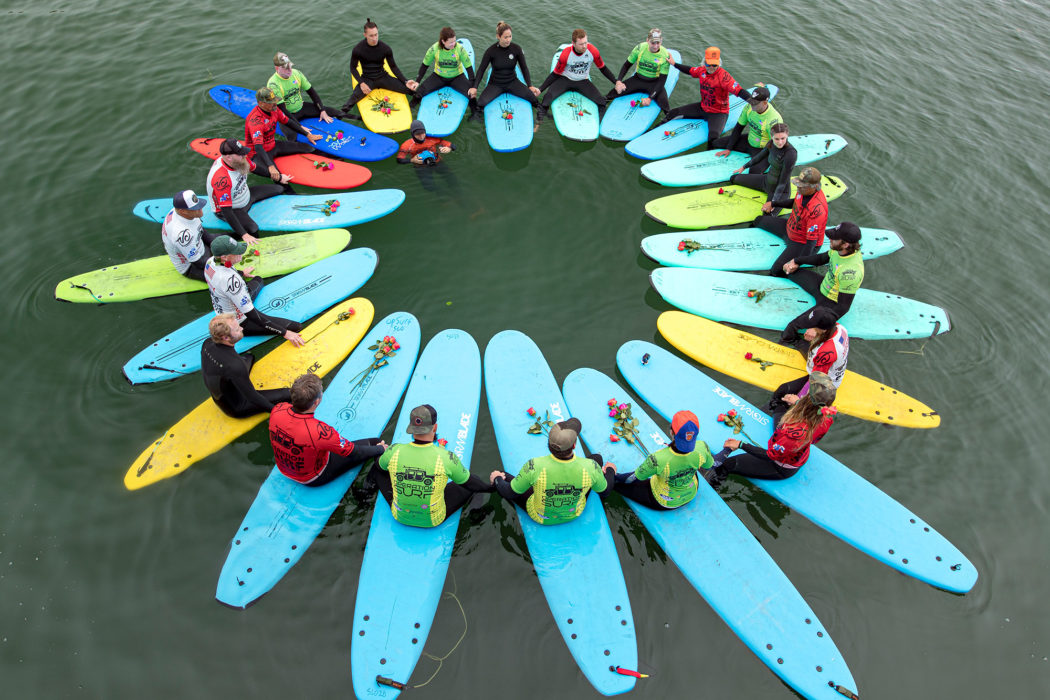Past the Break with Operation Surf
Photos courtesy of Roger Smith and Aaron O’Sullivan
People who help people tend to be the better ones out there. The ones who put their entire hearts and souls into giving someone else the experience of a lifetime. We really like these folks. This is why we caught a couple of waves with the good people over at Operation Surf, an organization dedicated to helping injured military and veterans achieve wellness through nature and community-based programs revolving around surfing. After showing us how to hang a couple lefts, founder, former pro surfer and program developer Van Curaza taught us the importance of willingness and the power of changing your perspective. After that sesh, we paddled out with veterans Neil, Billy and Stephanie to hear how being in the water has changed their lives for the better. Cowabunga.
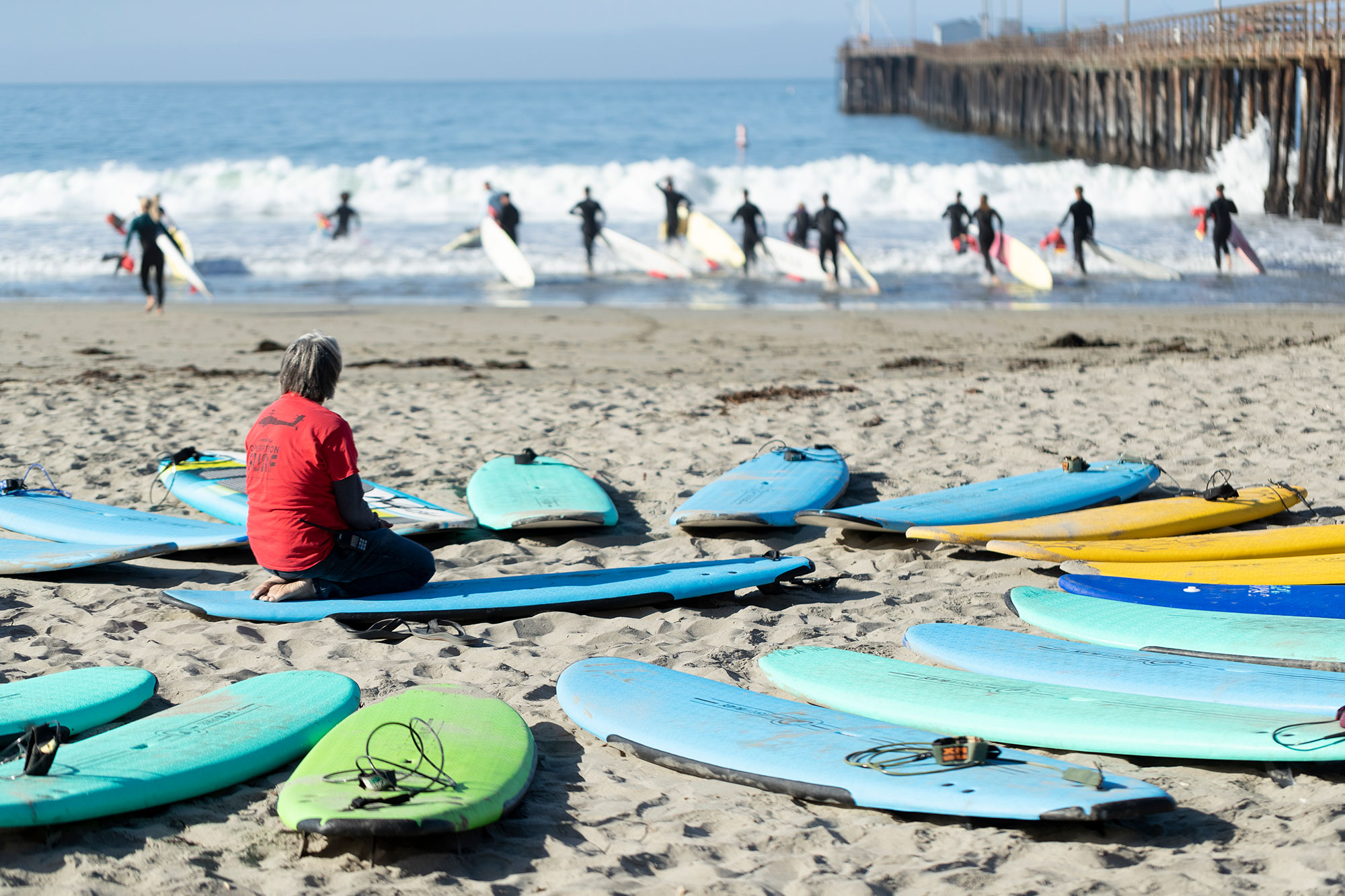
What led you to start an organization that is targeted to helping veterans?
Van Curaza: I am an ex-pro surfer who created a surfing program for any population and we focus now mostly on veterans. But my dream is to create programs for any population in need.
I originally started a program to help at-risk and underserved youth, because I related to that and the challenging moments that being alone can bring you. As I went through this process, I realized that surfing was very good for me. Someone told me to not only look at the bad things in your life, but to try and focus on the good. Surfing was the good. And from there that allowed me to redirect myself from a selfish person to a person who wants to help others.
My passion is to give surfing to anybody.
Surfing gave me the confidence, self-value and self-efficacy, helping me move forward through all these things in life. So in 2008, I started Van Curaza Surf School to give back so others could experience what surfing did for me because surfing is very good for anyone who is having a hard time dealing with life. A year later, we started Operation Surf after efforts in Texas to help active duty warriors recovering in the Brooke Army Medical Center and the Center for Intrepid.
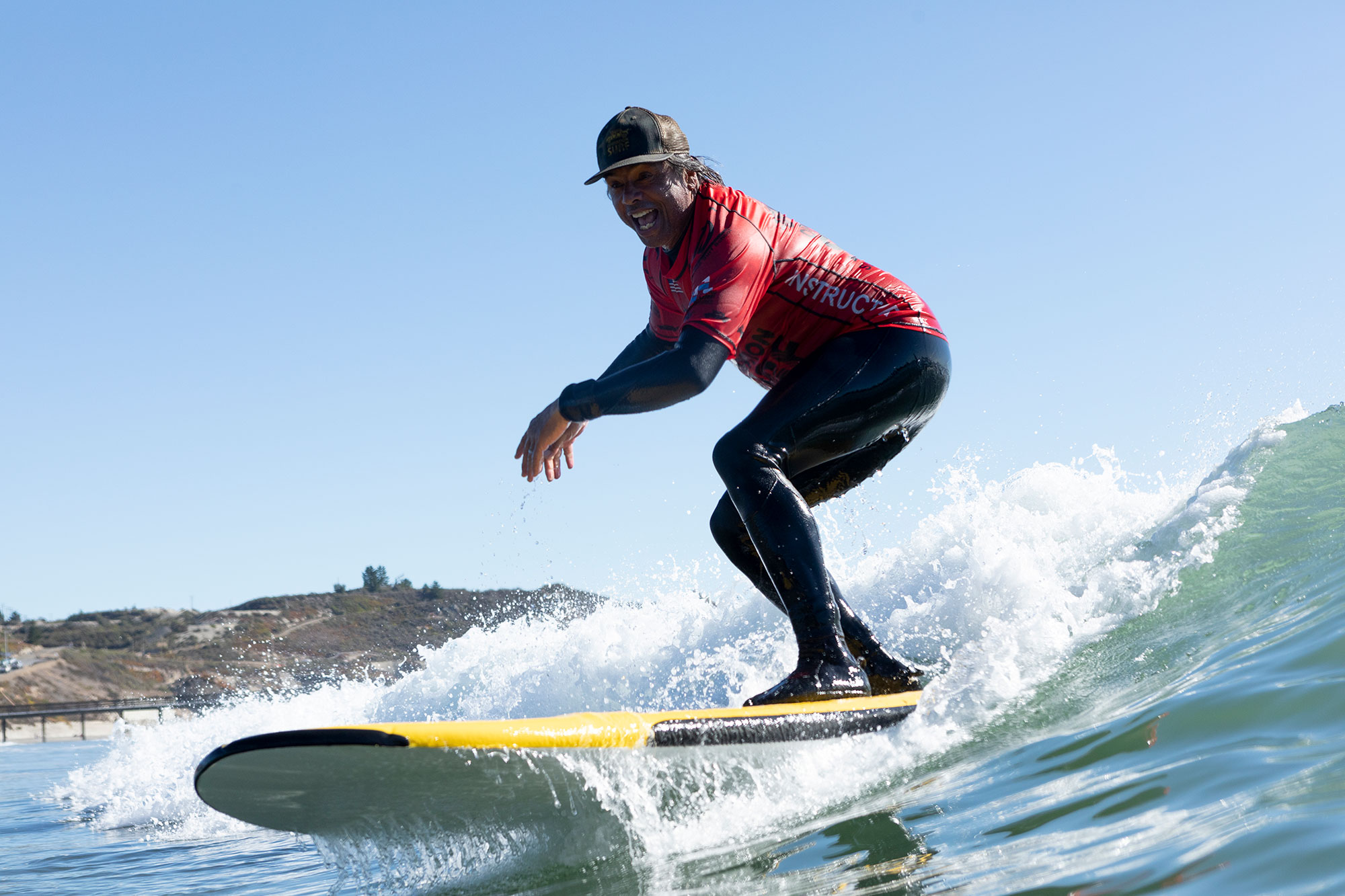
Giving back and helping other people is our mission. Everything goes into serving veterans and having that life cycle so the veterans we help can help other veterans who might be in the same place.
In what ways does surfing benefit us psychologically?
VC: When you finally get out there and surf, you’re in a spiritual and mental place of peace—that mental and emotional release that we need is a huge component of the process of healing.
A study by Russell Crawford shows that surfing decreased PTSD by 36 percent, decreased depression by 47 percent and increased self-efficacy by 68 percent.
There are two different sides to this: the emotional and mental injuries—the emotional injuries from their experiences that can’t be seen—and there is the physical side to injuries that can be seen.
Mental and Emotional
Experiences are what create the memories that trigger emotions and feelings due to things that remind us of what we went through. There is no rest. Your mind is built to think. When you go into the ocean and you go surfing, even though you don’t like it, it’s going to require 110 percent engagement, which gives your mind a rest.
When you increase and improve in something, your self-efficacy increases and your self-worth increases because you’re accomplishing something you didn’t think you could do unless you put in the willingness to do it. So there’s the psychological benefit of surfing in the mental aspect.
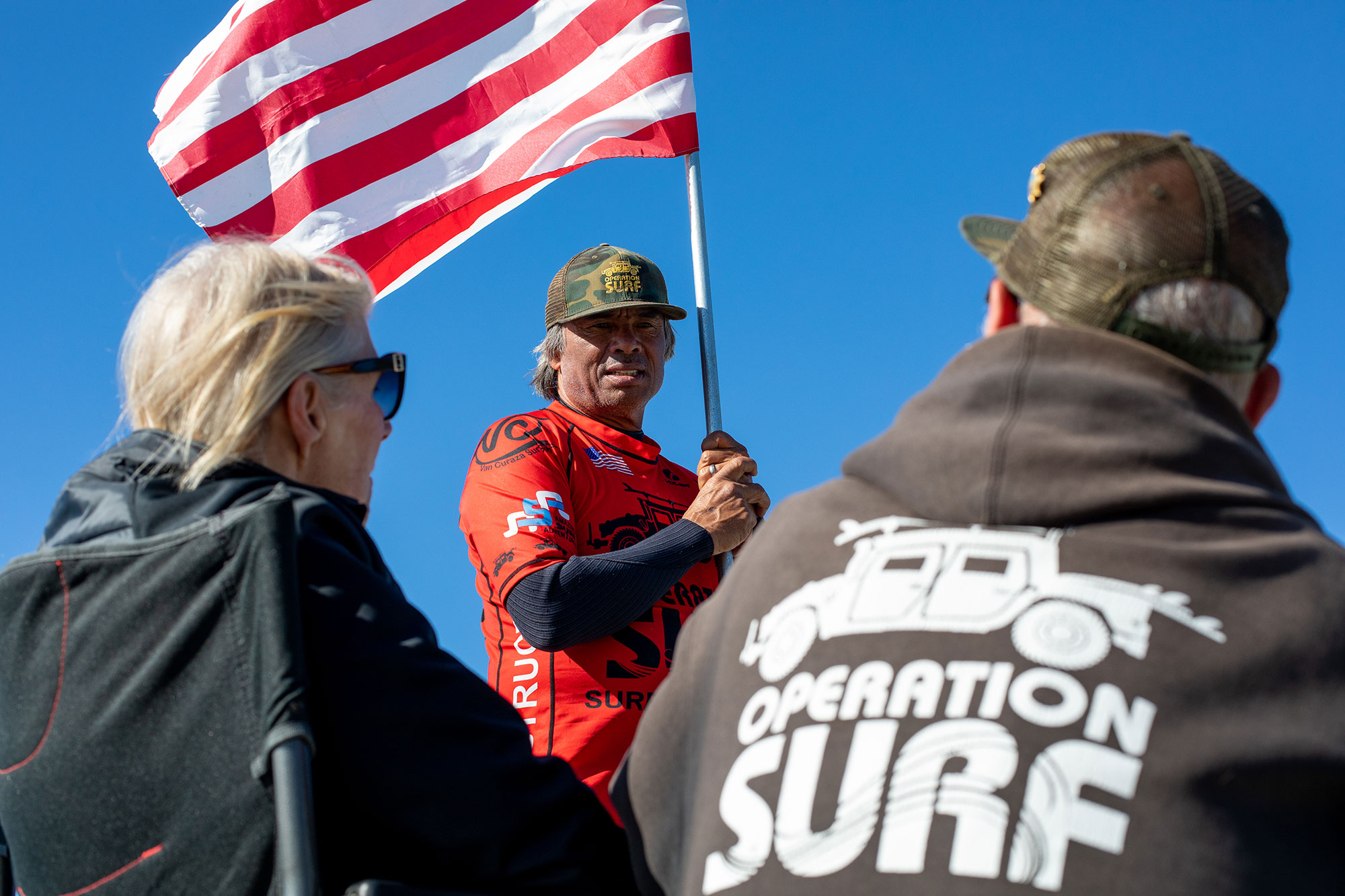
Physical (Sometimes combined with mental)
The mindset of someone coming to our program is typically, “I need to get out of the hospital and try to do something else, I’ll go surfing, be at the beach, etc.” They’re on their way to come to a surfing program, but they don’t think they can do it because they don’t have any legs. Their perception of surfing is standing on two feet and riding the board. But what I say is that you aren’t going to surf like I do, you’re going to surf like you do. I’m going to teach you how to catch waves and how to make a surfboard work and we’re going to do it by your abilities, not by limitations.
And that is changing your perspective and realizing that everyone has assets even though there are seemingly obvious deficits. But that’s why being adaptive is so involved with and important to what we do.
I’m going to teach you how to catch waves and how to make a surfboard work and we’re going to do it by your abilities, not by limitations.
Billy
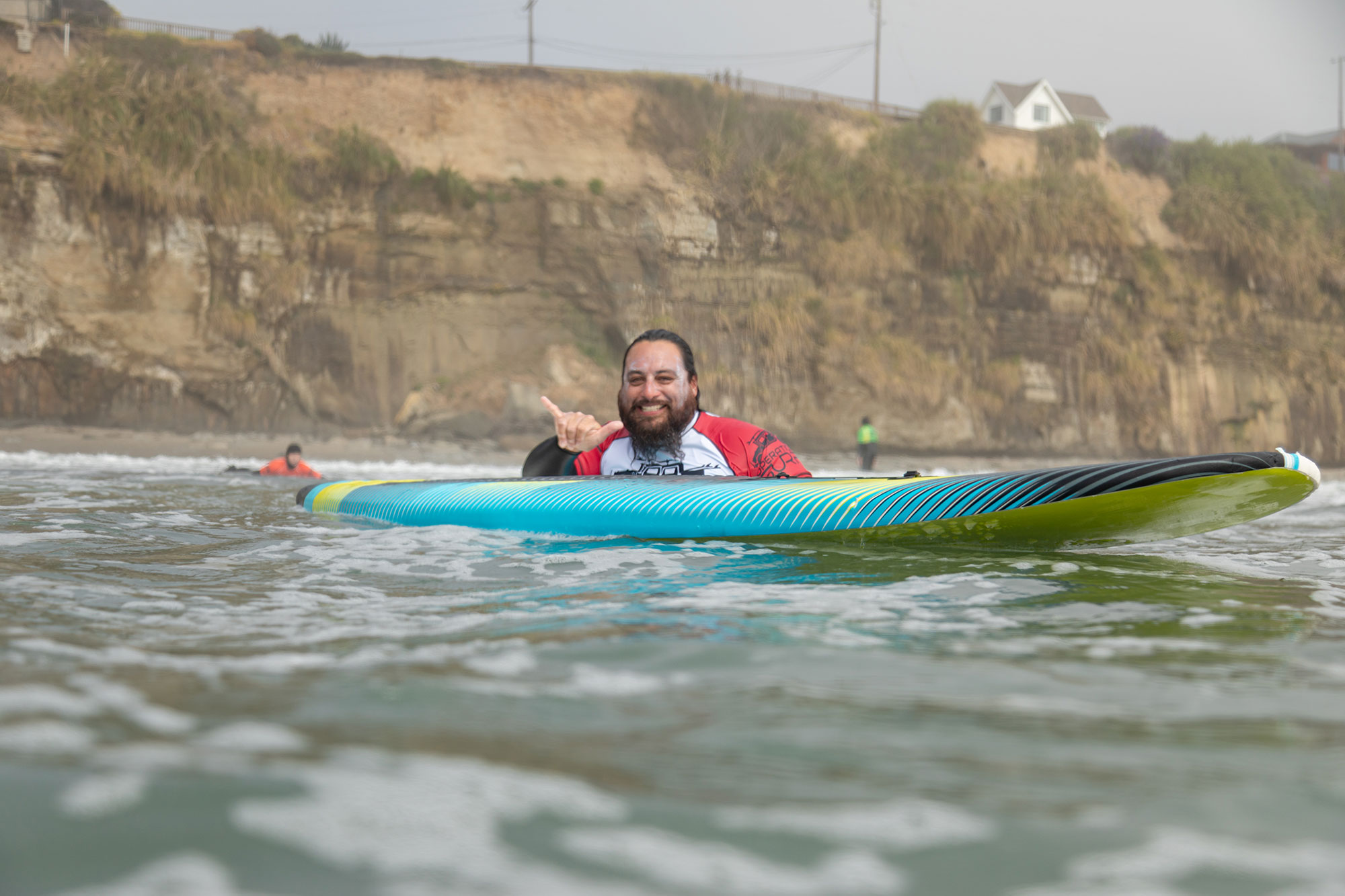
How many years did you serve:
Served from 2002-2006.
What branch of the military did you serve? Why?
The Marine Corps. A lot of my reasoning was my older cousin was a Marine and it was just one of those branches that stuck out to me. After I graduated high school in 2001, 9/11 happened and it was just a culmination of me not being where I wanted to be, wanting to get away, and this horrific event upsetting me, so that thrust me into wanting to join.
What was your rank and specialty?
I was a 35-33, which is a Logistics Vehicle Systems Operator. The easy way to say it is I was a truck driver. My rank was a E-3, I got out as a Lance Corporal. Not super high at all, but it’s definitely the backbone of the Marine Corps if you were to ask anybody else.
Favorite duty station?
My favorite and only duty station was Camp Pendleton in San Diego. That’s where my unit was, but I spent most of my time deployed to the Middle East and was part of the Iraq invasion in 2003. And then our unit deployed again in 2004 and we were out of Fallujah. So we supported all of the First Marine Division.
How has being involved with Operation Surf changed and/or bettered your life?
I could stay on this phone for hours. But to keep a long story short, Operation Surf has completely changed my outlook on my life. Stand-up surfing was always the one thing I wanted to accomplish, I just didn’t have the resources around me to make that happen.

About five years ago I came across Operation Surf, but I kept missing the application deadlines. In 2020, I was filming a documentary, following another Marine who wanted to walk 22 miles a day carrying 22 kilos from Palo Alto all the way to San Diego. On days two and three, we came through Santa Cruz Mountains in Watsonville and Operation Surf had a really heavy presence and I got to meet Sean Meyer, an alumnus of Operation Surf.
Then the pandemic hit. At the end of the year, I was traveling cross country on another documentary, following some Marines that had one of their squad leaders jump on a grenade back in 2004 to save their lives (it’s a really awesome documentary), and I got a call and found out that my best friend of 25 years had passed away.
I finished the documentary out, but my Post Traumatic Stress Disorder intensified after the incident and I could feel myself slipping back into the hole I was in when I got out of the Marines.
Up until this point I had always been talking about wanting to get back in the water, but since my friend passed, I told myself that this was the year I was going to get back in the water.
So I got hooked up with VSA, the Veteran Surf Alliance and the person I spoke to on the phone happened to be Sean Meyer, who I met and spoke to when filming that documentary in 2020. It was this cool full-circle thing.
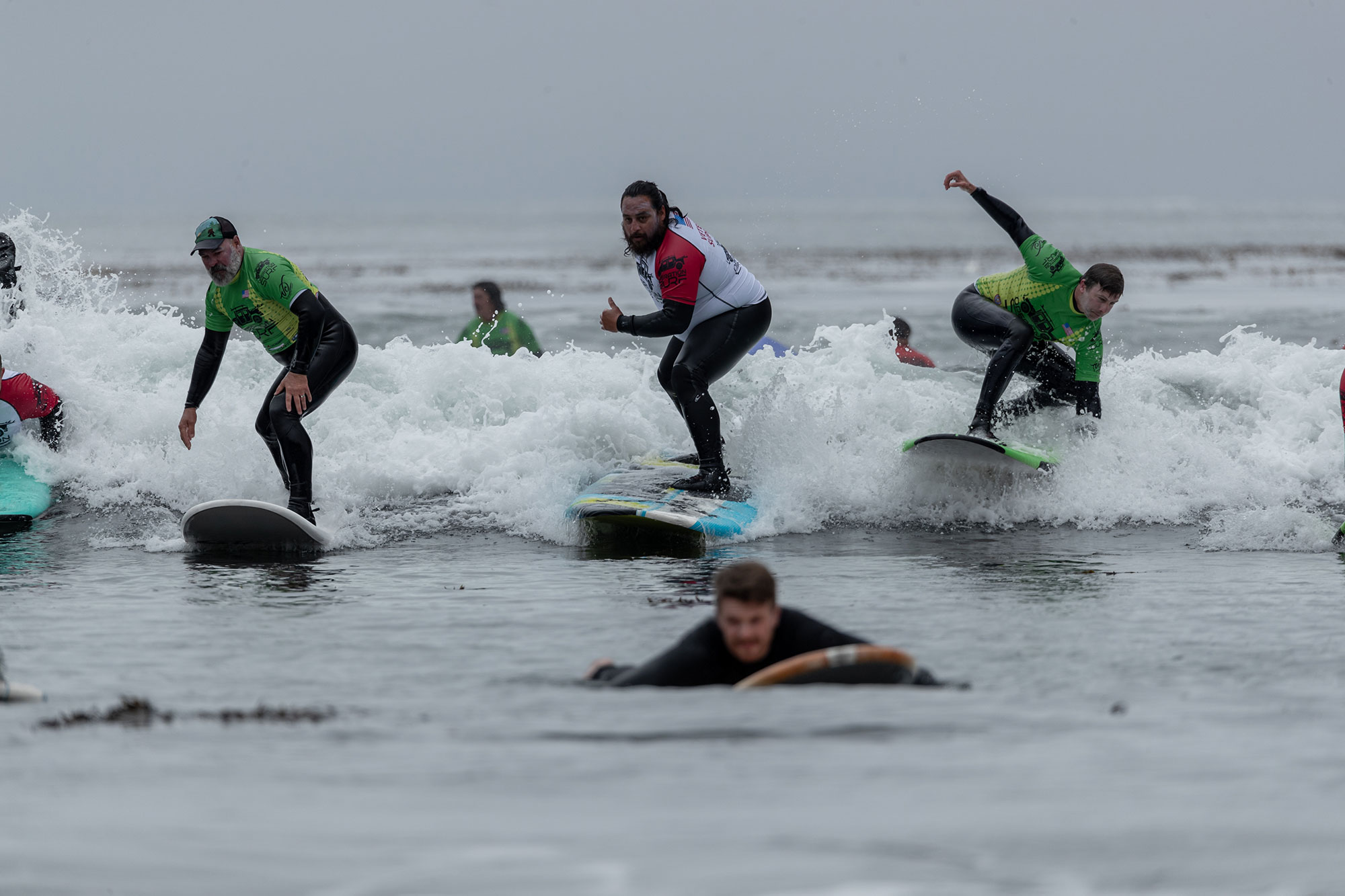
A month or two later, I got a call from Operation Surf. I drove down there and just experienced what I had been searching for for the last 20 years. And it wasn’t easy. I knew that going into it. I’m a bigger guy and the first two days beat me up pretty good and the second day I didn’t get up at all and I was convinced it wasn’t going to happen for me.
With the support of my roommate at the time, my instructor and the Vet Support that was there, and the power of music, I was able to get myself out of that funk and the next day Van took me out and the first seven waves before anyone was even in the water, I was standing up and I was surfing.
My mana was so altered up until that point, surfing put me in a whole other realm of feeling good about myself. Leading up to this week-long, I was struggling with alcohol (which I have been forever), and July 4th was the last day I ever had a drink, and I haven’t touched a drink since. My mental clarity has been the most on-point it’s ever been in my entire life and I know what my worth is.
And those next three days of surfing were the best feeling I’ve ever felt. One day last year when Operation Surf came up this way, I went out there and caught the best wave of my life. It was the most euphoric feeling I’ve ever felt. During this last event they had, I was there as Vet Support and it was the most waves I’ve ever caught.
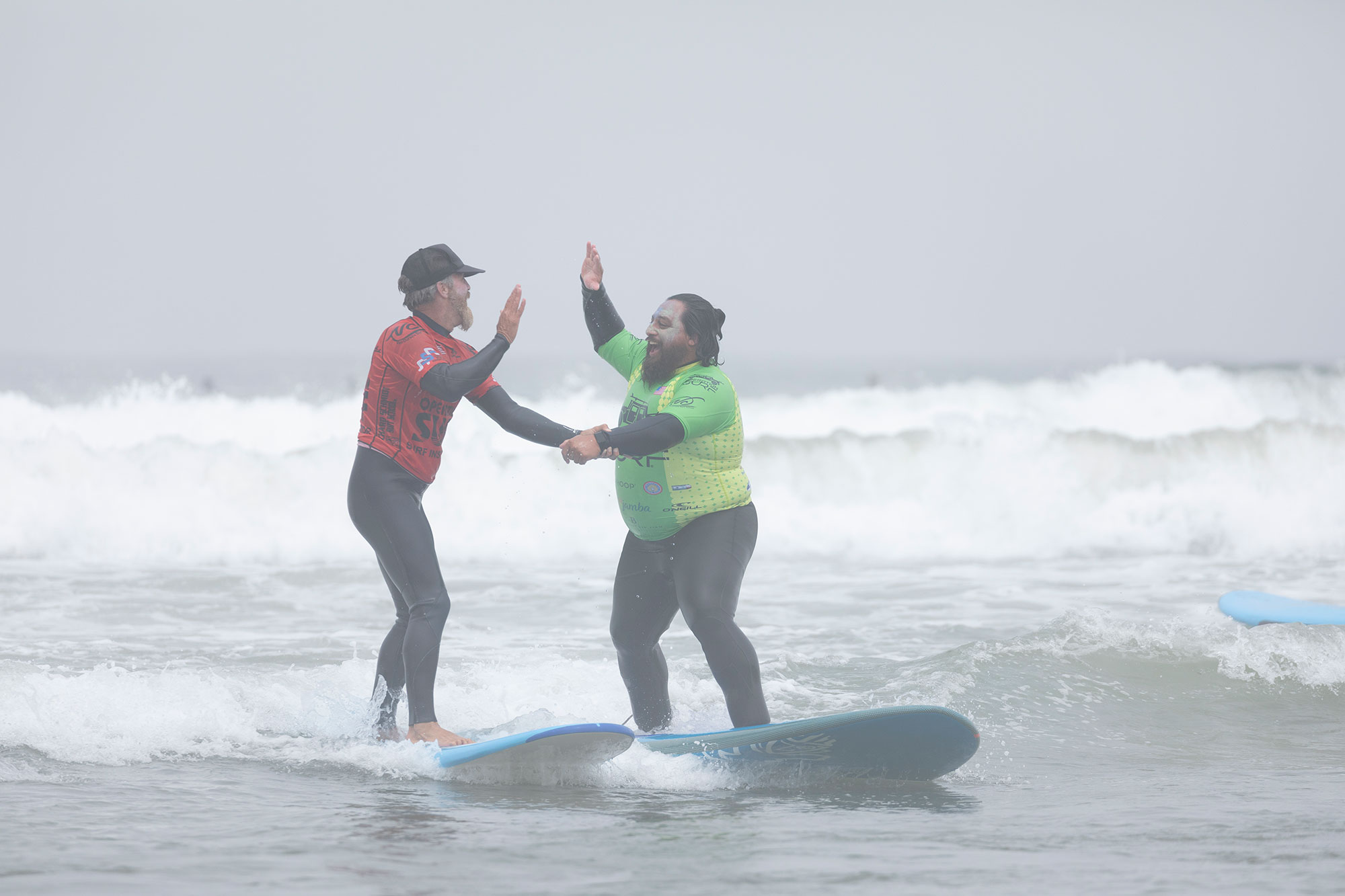
Needless to say, Operation Surf has given me an outlook on life that I just haven’t been able to see.
One thing you wish everyone could know about being a veteran.
I don’t want people to think just because I’m a veteran that I’m any different from anybody else. My reasoning for joining was my reasoning alone and everybody’s reasoning is different. But, we were willing to stand up for something. We’re people too.
You never know who is who. When someone is willing to give up everything just so we can all enjoy this freedom that we have, just acknowledge that we’re here because sometimes we feel forgotten.
When veterans are alone and they’re isolated, you’ve paddled out too far—you’re in the open ocean and there’s nobody there. On the shoreline, you have all your normal people; family, friend and people who are scared to surf because they are worried about what’s under the surface. But then on the break, you’re going to have a lot of people that are just like you. And chances are there is going to be someone there that understands you. Stay on the break, because once you go out too far it’s hard to come back.
Stephanie
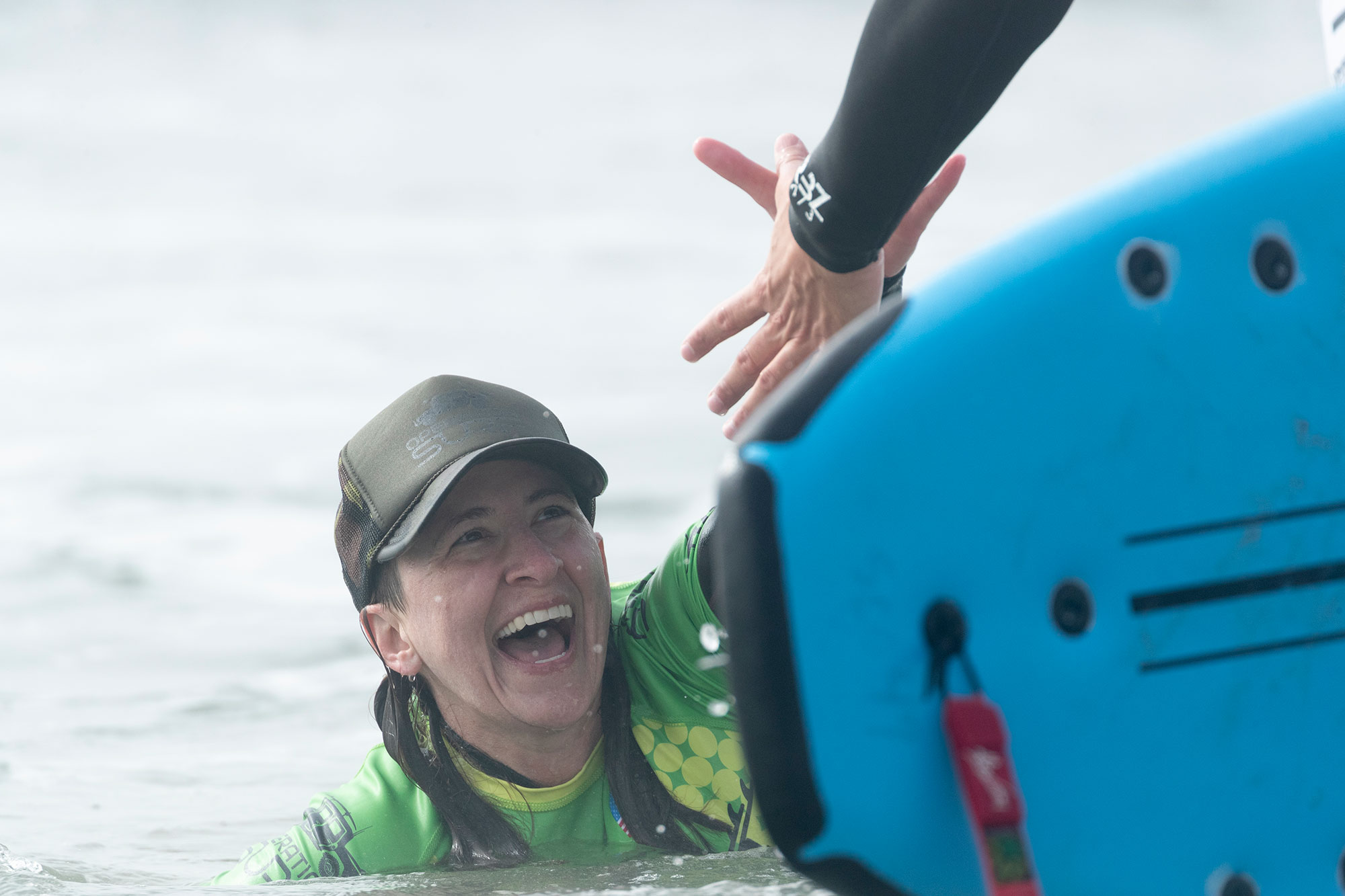
How many years did you serve:
I served just under 19 years, I got out in October of 2021.
What branch of the military did you serve? Why?
The Army. I started as a 17-year-old and didn’t really have the clarity of understanding each branch and its function. But when I thought of the military I automatically thought of the Army.
What was your rank and specialty?
I had a lot of different jobs in the military, but I started as an E-1 Private Military Police Officer and I ended my career as an O-3 Captain, Behavioral Health Officer Clinical Social Worker.
Favorite duty station?
Joint Base Lewis-McChord. I was a reservist in guard my entire career and did a couple of different state-side mobilizations and went overseas in the Middle East, but I moved out to the Pacific Northwest in 2015, knowing there was a large Army installation in the region. I wanted to have access to it and the different opportunities for career progression, so JBLM served me well. And it helps that you can see Mount Rainier in the background as you drive around the base.
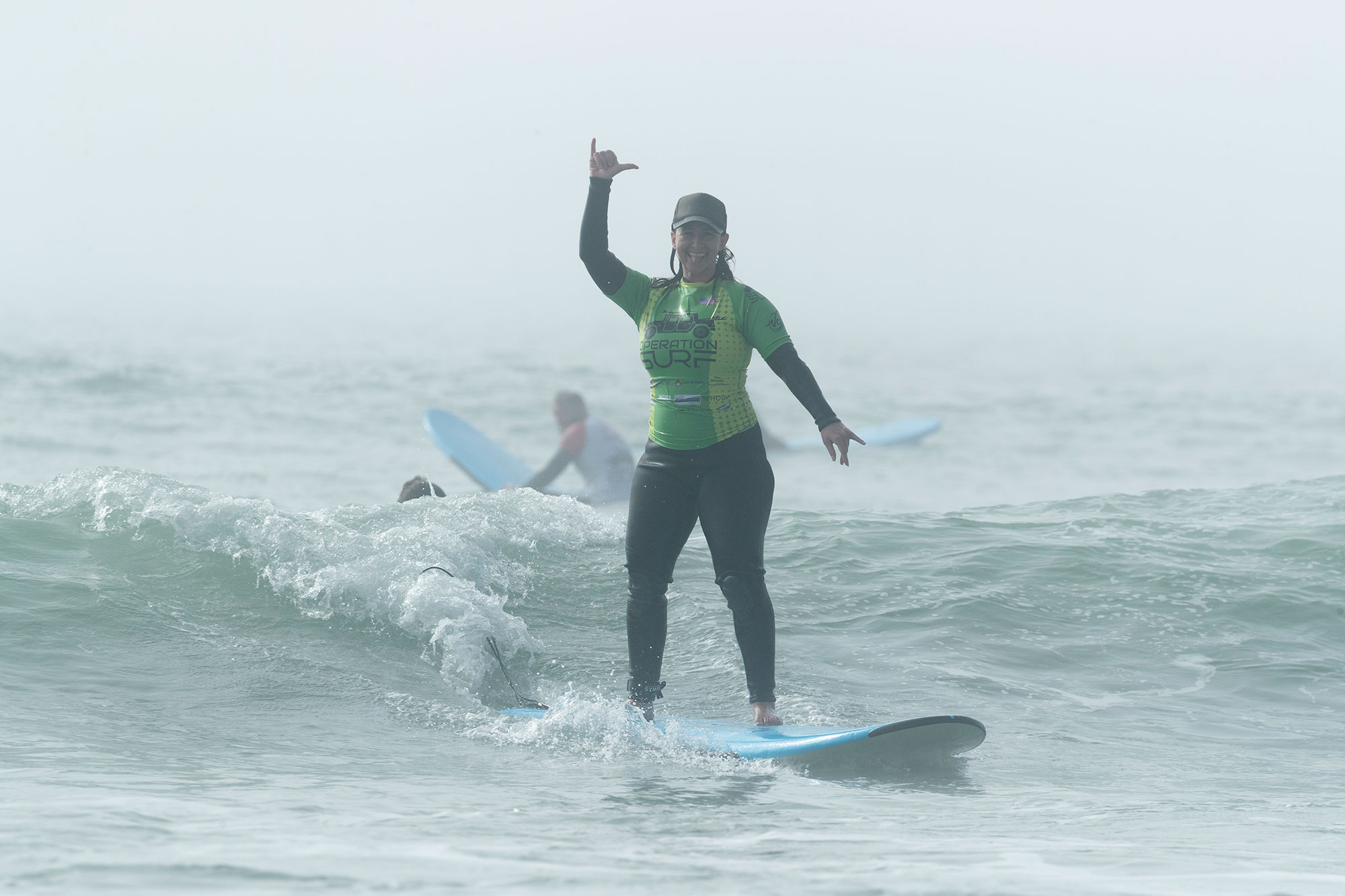
How has being involved with Operation Surf changed and/or bettered your life?
I would say that anytime that someone is encountering challenges in their lif— if you can carve out an intentional time to promote connectedness with the earth and your body, it’s going to help you. And I can say that as someone who has participated in Operation Surf and as a licensed Independent Clinical Social Worker civilian side, that is a concept I promote and ask people to engage in when they are having a hard time.
When I came back from my Middle East deployment, I was home for about seven days after being gone for a year and a half of really hard work, and the pandemic hit. And then I got deployed again for Covid involuntarily and not to go into too many details, but it really shook me. When people get back from deployment they need that recovery time and typically you have two years of mandatory dwell time, but with the pandemic that was just all out the window, so I got plucked. I was gone for about two-and-a-half months and came home and had a very rough time.
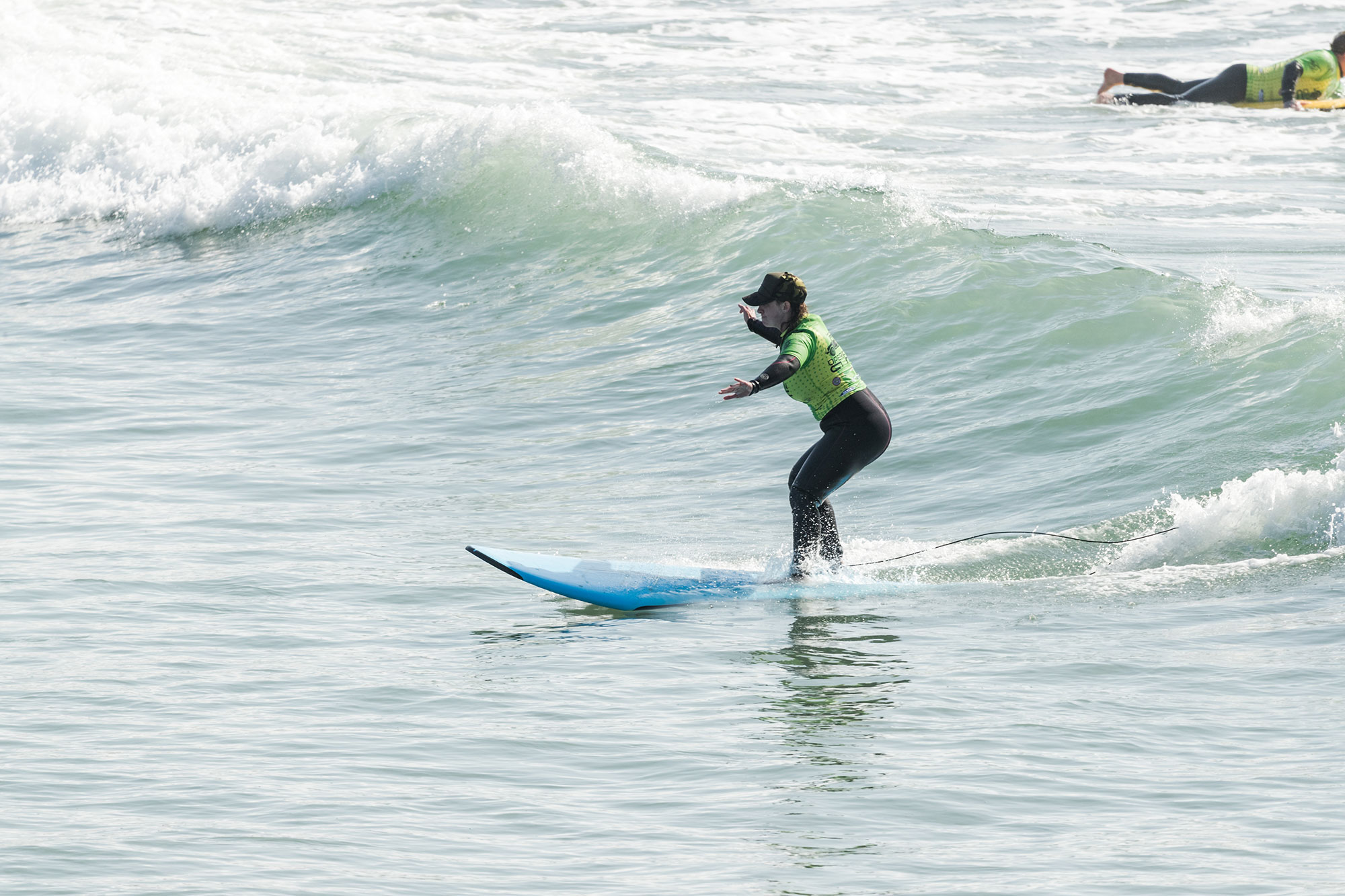
Took three months and then went back to work and started to look into outdoor therapy and I found a local ski program, but I wanted more. So I started Googling a little further and I found Operation Surf. I had always wanted to learn how to surf. So it gave me something to look forward to, focus on and be future-minded for because it was six months out. And it was also a way for me to reassociate with my military identity. I was feeling a little disconnected from it when I went through those challenges, so being introduced to surfing and a supportive community that allows for vulnerability (which is very opposite from the military) and encourages discussion and personal growth was very refreshing and healing for me.
And there is something to be said about being out on the water that promotes that meditative experience. Engaging those parts of your brain that detract from the amygdala, which is the fight or flight response. So it was very therapeutic for me and I’m incredibly grateful in hoping that I can get out there and do a Vet Support every year or two years, just to stay connected and have that pause periodically.
One thing you wish everyone could know about being a veteran.
The one thing every veteran has in common, despite their many differences, is a sense of patriotism, however, they personally define that.
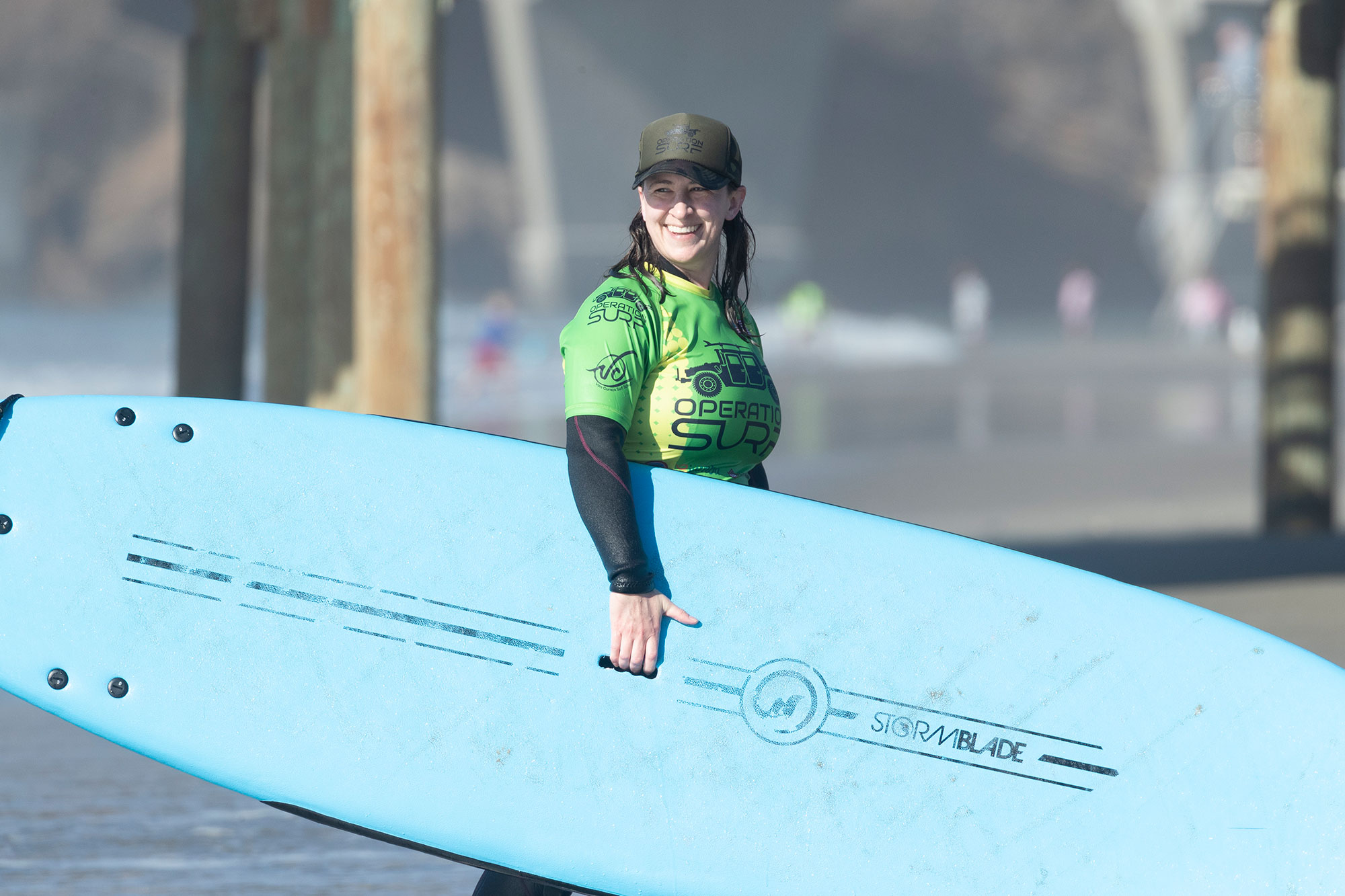
Every time I put on the uniform and I’d look at the flag on the right side of my sleeve, as an LGBT-identified person who served under “Don’t Ask Don’t Tell” for ten years, I’d know I am defending the Constitution and I’ve seen it work for people like me to live authentically and have access to the freedom and protection that we deserve.
Everyone looks at that flag and has their own interpretation, but when they raise their right hand and do that first oath, it’s not fake. That is one thing that unites the most diverse workforce in the world—we are all agreeing to sign up for one thing. I think it’s important to remember that as Americans—that people love our country even when it’s going through tough times, and how hard we had to fight to get where we are. And we can’t do it without the military.
Neil
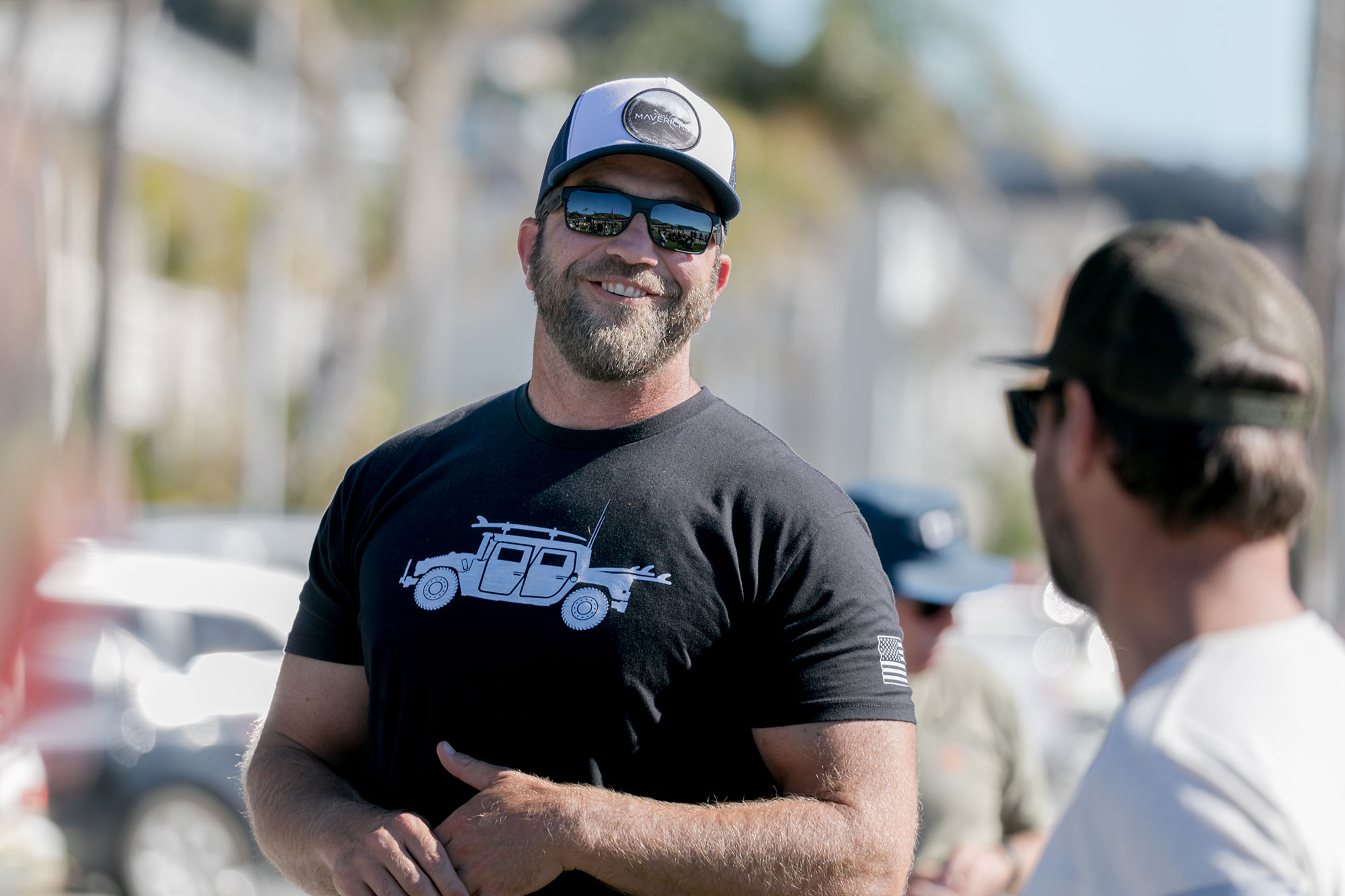
How many years did you serve:
Served for five years in Iraq
What branch of the military did you serve? Why?
I was in the Army. I never really thought about joining anything else, the Army was what I was going to do ever since I was in elementary school.
What was your rank and specialty?
I was an E-5 when I got out, which is a sergeant, and I was an 88-Mike, which is a truck driver. I was also cross-trained to be military police which was my role when we were in Iraq.
Favorite duty station?
Fort Benning, Georgia
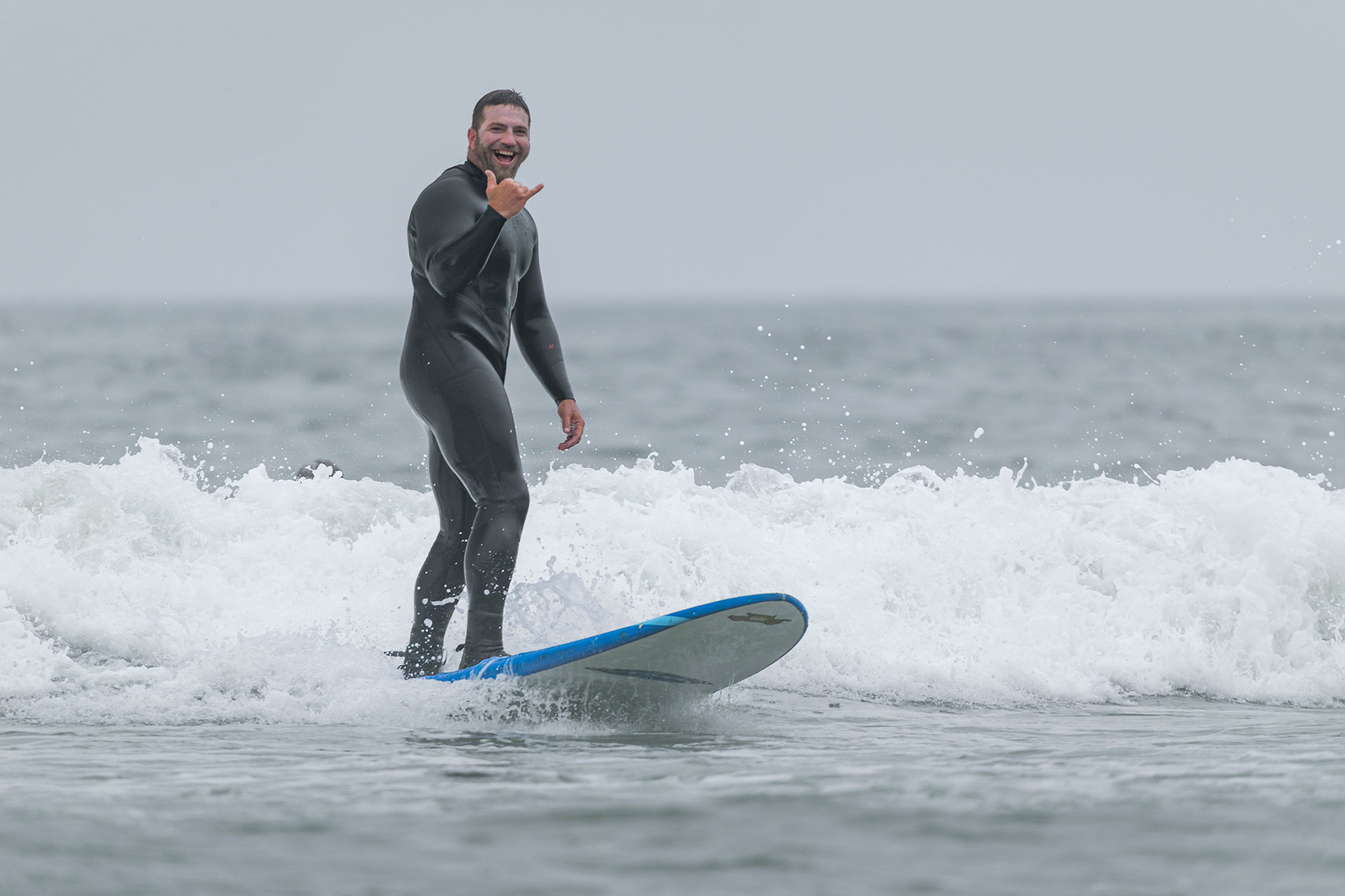
How has being involved with Operation Surf changed and/or bettered your life?
Before coming to Operation Surf, I was very withdrawn, isolated, and caught up in my own battles. But I wanted to take a surf lesson, and when I called a local surf shop, they told me Van Curaza Surf School. So I went and my surf instructor happened to be a veteran and told me about Operation Surf.
The veterans that were there that had gone before me were still a part of it and happy to be a part of it and I found that I did connect with them. So I did the program, stayed with it and built a lot of really good relationships with other veterans. I stayed involved and got to a place where I wanted to give back and was fortunate enough to be a Veteran Support while continuing to learn about the program, the mission and the values and believe in them.
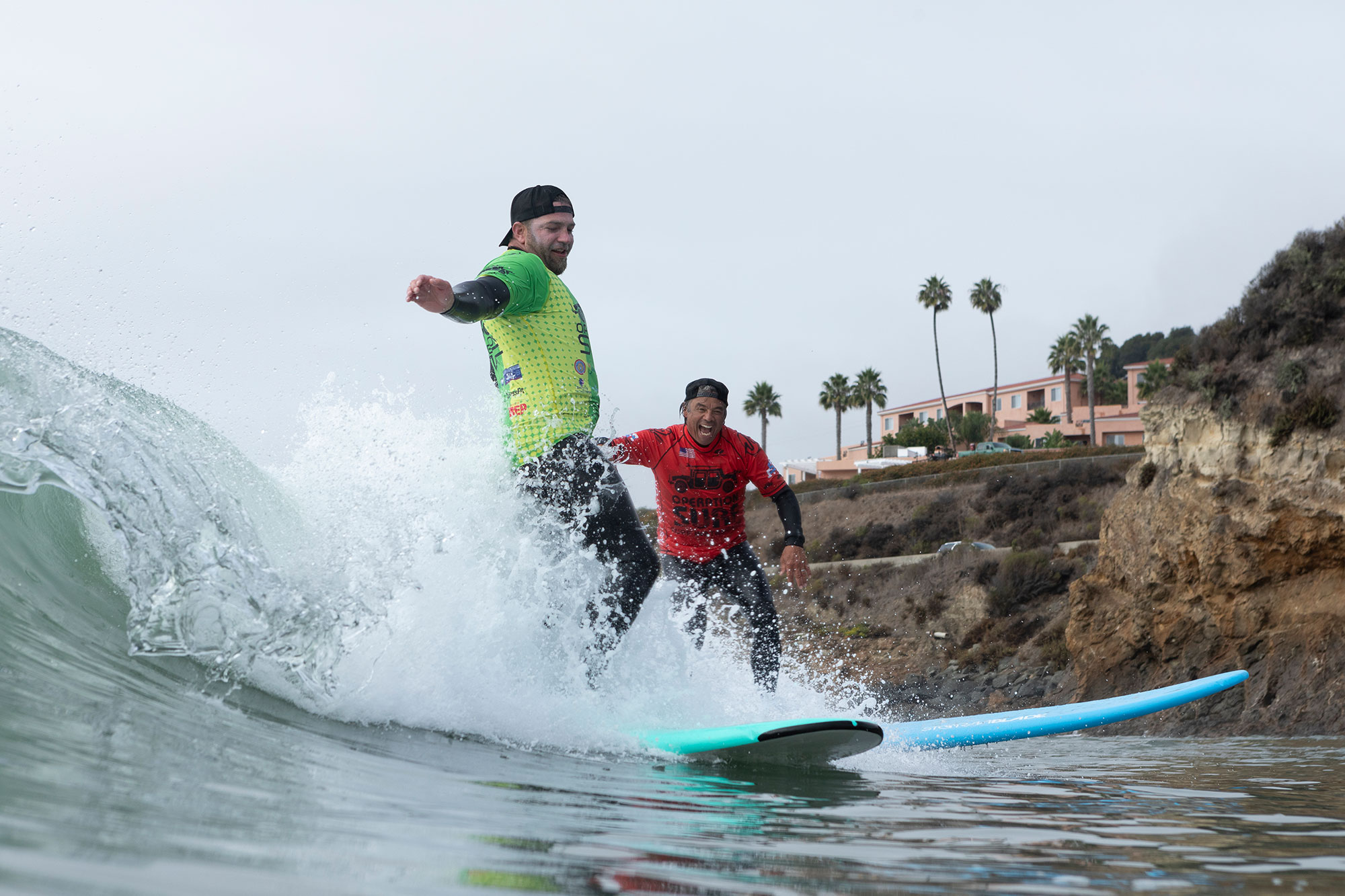
Veteran Leadership is now my title and I try to make the experiences of the veterans that came in even better than the last time. I noticed that my personal journey and giving back has helped me to focus on others and not so much on myself.
The surfing—just getting out there and being in the ocean and the challenges out there that you have to overcome helped me deal with things out here. It gets me out of my house. I have relationships now with other soldiers who are like-minded. I’m not alone anymore.
That’s my biggest success today since I’ve gotten out of the military.
One thing you wish everyone could know about being a veteran.
Sometimes the wounds that you can’t see are the worst and that a veteran alone is the worst place to be. If you know any veterans that are alone, get them connected with other like-minded people. Because everybody knows a veteran.
